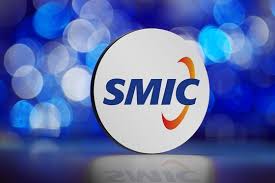
Share prices of SMIC, the largest chip maker of China, dropped by as much as 20 per cent on Monday after publication of news that the company would be hit sanctions from the United States. The rout at the stock market resulted in the company losing out $28 billion off its market value while analysts forecast dire consequences for the company if the US ban was actually implemented.
American companies could be prevented from transiting with the company Semiconductor Manufacturing International Corp (SMIC) – effectively disallowing US firms to provide goods and services, by the US S. Department of Defense, according to reports published last week.
That move could be detrimental to the best opportunity of China of creating a self-sufficient semiconductor industry in the country through SMIC/. Analysts also see the move by the US as a possible source of further escalation of its tensions with China which involves trade and technology.
"The company could go under within a few years," says Mark Li, who tracks China's chip industry at Bernstein Research.
There were no comments available on the issue from SMIC.
Despite support form the Chinese government since it was founded two decades ago, SMIC is still outmatched by Taiwan Semiconductor Manufacturing Co Ltd (TSMC) in terms of production volume, technology, and efficiency.
The Chinese firm is about two generations behind that of TSMC as it has only recently introduced production capacity for chips at the 14 nanometre process node.
For getting access to key production equipment, reliance on a number of US-based companies, such as Applied Materials is a major issue for SMIC, just like TSMC and other such companies.
About half of SMIC's suppliers are American, according to estimates of research firm Jefferies.
Alleged ties between SMIC and the People's Liberation Army in China are being investigated by the United States, claimed reports quoting sources. Such allegations have been already denied by SMIC.
In Monday, the price of shares of the company in Hong Kong fell more than 23 per cent to HKUS$18.10 which was its lowest their lowest since June 12. And there was a drop of as much as 11 per cent in the shares of the company at the Shanghai exchange from where the company had raised $6.6 billion in a secondary listing in July.
The possible US sanctions on SMIC are likely to be similar to those imposed by the United States on Huawei Technologies, preventing all US companies from offering and selling any products and technology to the Chinese firm. The sanctions have resulted in a decline in overseas phone sales of Huawei and have muzzled the once-promising chip business of the company.
Analysts said that supplies from non-American vendors could also be impacted by the possible US sanctions as the US measure could be "shadow followed" by chip equipment vendors from countries such as Japan and the Netherlands, with whom the US has friendly ties.
(Source:wwww.channelnewsasia.com)
American companies could be prevented from transiting with the company Semiconductor Manufacturing International Corp (SMIC) – effectively disallowing US firms to provide goods and services, by the US S. Department of Defense, according to reports published last week.
That move could be detrimental to the best opportunity of China of creating a self-sufficient semiconductor industry in the country through SMIC/. Analysts also see the move by the US as a possible source of further escalation of its tensions with China which involves trade and technology.
"The company could go under within a few years," says Mark Li, who tracks China's chip industry at Bernstein Research.
There were no comments available on the issue from SMIC.
Despite support form the Chinese government since it was founded two decades ago, SMIC is still outmatched by Taiwan Semiconductor Manufacturing Co Ltd (TSMC) in terms of production volume, technology, and efficiency.
The Chinese firm is about two generations behind that of TSMC as it has only recently introduced production capacity for chips at the 14 nanometre process node.
For getting access to key production equipment, reliance on a number of US-based companies, such as Applied Materials is a major issue for SMIC, just like TSMC and other such companies.
About half of SMIC's suppliers are American, according to estimates of research firm Jefferies.
Alleged ties between SMIC and the People's Liberation Army in China are being investigated by the United States, claimed reports quoting sources. Such allegations have been already denied by SMIC.
In Monday, the price of shares of the company in Hong Kong fell more than 23 per cent to HKUS$18.10 which was its lowest their lowest since June 12. And there was a drop of as much as 11 per cent in the shares of the company at the Shanghai exchange from where the company had raised $6.6 billion in a secondary listing in July.
The possible US sanctions on SMIC are likely to be similar to those imposed by the United States on Huawei Technologies, preventing all US companies from offering and selling any products and technology to the Chinese firm. The sanctions have resulted in a decline in overseas phone sales of Huawei and have muzzled the once-promising chip business of the company.
Analysts said that supplies from non-American vendors could also be impacted by the possible US sanctions as the US measure could be "shadow followed" by chip equipment vendors from countries such as Japan and the Netherlands, with whom the US has friendly ties.
(Source:wwww.channelnewsasia.com)














